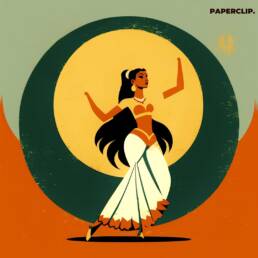“Badluram ka Badan” is probably the most popular song rendered by an army regiment in India. But another song written and sung by a few members of the British army left an indelible impact on the 90s youth in India and became a part of evergreen nostalgia. Tune in for more.
In 1971, Norden Tenzing Bhutia – a young boy from Kurseong, joined the Gurkha regiment in Her Majesty’s Armed Forces. But deep within, Norden had a hidden love for music since childhood.
His earliest encounter with music was through his grandfather who was well connected with some of the stalwarts of Nepali music like Amber Gurung, Gopal Yonzone, Shanti Thatal, and Ranjit Gazmer. Though inspired by all of them, Norden did not take to music when growing up.
His primary duty in the British Army frequently took him to different countries. Along the way, he almost lost his passion for music until he found a bunch of like-minded fellow soldiers at the British Gurkha regiment in Hong Kong.
They started their journey with buying second-hand instruments from a local shop in Hong Kong and playing together as a band after duty hours. Norden named the band ‘The Himalayan Band’. Soon they began playing on every occasion at the regiment, mostly performing covers.
Norden’s voice captivated a larger audience and the British Forces Broadcasting Service radio asked them to come up with an original song. The band recorded their first original composition ‘Gajalu Le Akhai Chopney’ at the radio station and it became an instant hit.
The song was originally written and composed by Norden’s dear friend and a pivotal figure of Nepali music – Late Arun Thapa. The Himalayan Band thus embarked on a journey and soon cemented their place in the history of Nepali music.
But how did Norden become popular amongst the Indian youth? It came with the band’s growing popularity as they went on to create several original songs, one of which was ‘Musu Musu Hasi Deu’.
The Nepali mukhra of the song along with the tune was copied and made into a Hindi song in the Bollywood movie ‘Pyaar Mein Kabhi Kabhi’ and was sung by the then debutant singer Shantanu Mukherjee, popularly known as Shaan.
Norden was neither asked for permission nor was he given due credit for the original composition. The song went on to become a career defining track for Shaan and became immensely popular amongst the 90s generation.
Despite starting so late, Norden and his band had a lot to offer to the Nepali music industry. But his fate had other things planned. He had to put a hard stop to his singing as he was diagnosed with throat cancer.
Norden and his Himalayan Band achieved immortality in Nepali music in a short timespan. As for him, he will forever be a part of romantic nostalgia through someone else’s voice.
Sources:
- Bicky. “Norden Tenzing – A Legend”. https://thedarjeelingchronicle.com/norden-tenzing-a-legend/
- “RIP: Norden Tenzing, The Voice Behind “Musu Musu Haasi”, “Gajalue Le Akhai Chopne” Passed Away”. https://www.nepalisite.com/rip-norden-tenzing-the-voice-behind-musu-musu-haasi-gajalue-le-akhai-chopne-passed-away/
Video attributes:
- Musu Musu Hasi Deuna Lai Lai by Dazu Bhai Creation https://www.youtube.com/watch?v=WBi0-LM_Z4k
- Musu Musu Full Video by SonyMusicIndiaVEVO https://www.youtube.com/watch?v=5ahWUJsgqGg
Image attributes:
- “Norden Tenzing – a legend – thank you for your music”, from https://thedarjeelingchronicle.com/norden-tenzing-a-legend/
- https://www.nepalisite.com/rip-norden-tenzing-the-voice-behind-musu-musu-haasi-gajalue-le-akhai-chopne-passed-away/




